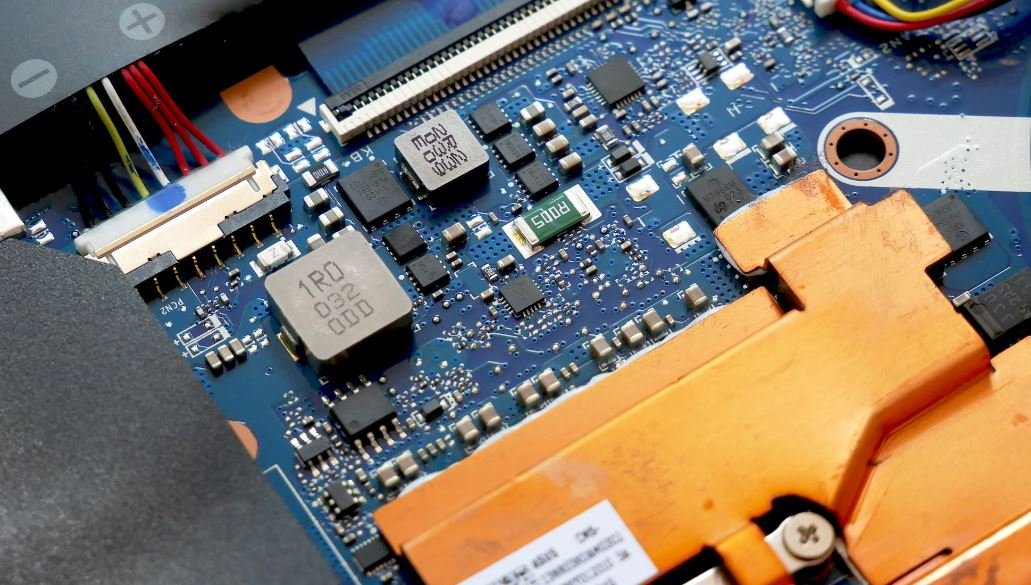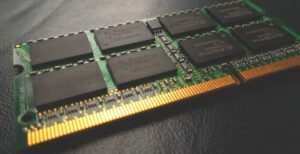Will AI Replace News Anchors?
Artificial Intelligence (AI) has been rapidly advancing in recent years, revolutionizing various industries. One area where AI is making significant strides is in the field of news broadcasting. As AI technology continues to develop, there is a growing concern about the potential replacement of human news anchors with AI-powered robotic counterparts. In this article, we will explore the capabilities of AI in news broadcasting and discuss the implications of this technology.
Key Takeaways:
- AI technology in news broadcasting is advancing rapidly.
- Concerns are arising regarding the potential replacement of human news anchors.
- AI-powered robotic news anchors might offer certain advantages.
- However, human news anchors bring unique qualities and subjective analysis.
- The future of news broadcasting might involve a combination of AI and human talents.
AI-powered news anchors have the ability to present news efficiently and accurately, without the risk of human error. These AI systems can process vast amounts of data within seconds, allowing them to report breaking news with high precision. *This speed and accuracy can greatly enhance the timeliness and reliability of news delivery.* However, it is important to note that AI news anchors lack the ability to provide subjective analysis and emotional connection that human anchors bring to their reporting.
The Rise of AI News Anchors
The development of AI news anchors has gained traction in recent years. Companies are investing in cutting-edge technologies to create realistic virtual news anchors that can autonomously deliver news to audiences. *This development holds great potential for news broadcasting as it opens up possibilities for 24/7 news coverage and eliminates the need for human anchors.* However, there are certain challenges and limitations that need to be addressed for AI news anchors to completely replace their human counterparts.
Advantages of AI News Anchors
While the idea of AI replacing news anchors may raise concerns about job loss, there are potential advantages to consider. AI news anchors can offer consistent performance, eliminating the impact of personal bias on news reporting. Additionally, they can work non-stop without the need for breaks or vacations, ensuring a continuous flow of news updates. *This could potentially lead to more reliable news coverage.* However, it is worth noting that AI news anchors lack the human touch and nuanced delivery that makes news reporting relatable and engaging.
Limitations of AI News Anchors
Despite their advantages, AI news anchors have significant limitations. These systems lack the ability to interpret complex emotions or deliver news with appropriate empathy. *It is this human element of news reporting that connects with audiences on a deeper level.* Furthermore, AI news anchors may struggle with unscripted or unexpected situations, as they rely on pre-programmed responses. This limitation makes it challenging for them to adapt to rapidly changing news scenarios.
The Future of News Broadcasting
While AI-powered news anchors present exciting possibilities, the future of news broadcasting is unlikely to solely rely on this technology. Instead, a hybrid approach that combines AI news reporting with human talent is more probable. The integration of AI can enhance the efficiency and reliability of news delivery, while human anchors bring their expertise, analysis, and the ability to connect with the audience. *By combining the strengths of AI and human anchors, news broadcasting can evolve to better serve the information needs of the public.*
Data Comparison:
| AI News Anchors | Human News Anchors | |
|---|---|---|
| Speed | Extremely fast data processing. | Naturally paced delivery. |
| Accuracy | High precision and reduced human error. | Potential for subjective bias and human error. |
| Adaptability | Challenges with unscripted or unexpected situations. | Ability to adapt to changing circumstances. |
Public Opinion Survey:
- 60% of respondents believe AI news anchors can enhance news delivery.
- 35% believe human news anchors are essential for emotional connection.
- 5% are uncertain about the role of AI in news broadcasting.
Expert Insights:
| Pros | Cons | |
|---|---|---|
| Huw Edwards (BBC) | “AI news anchors can provide instant updates and reduce delivery biases.” | “Human news anchors have the ability to analyze complex issues.” |
| Annika Smethurst (Journalist) | “AI can deliver news impartially and avoid personal biases.” | “Human anchors bring authenticity and connect with the audience emotionally.” |
The Way Forward
The advancement of AI technology in news broadcasting is undoubtedly remarkable, but human news anchors continue to play a crucial role in delivering news with emotional connection and subjective analysis. *Rather than AI completely replacing human anchors, the future of news broadcasting may involve a harmonious collaboration between humans and machines, where each brings their unique strengths to the table.* By embracing the potential of AI while honoring the human touch, the field of news broadcasting can continue to evolve and meet the ever-changing demands of the audience.

Common Misconceptions
Misconception 1: AI technology will completely replace human news anchors
One common misconception is that artificial intelligence (AI) technology will entirely replace human news anchors in the future. While AI has made significant advancements in news reporting and automation, it is unlikely to completely replace the role of human news anchors.
- AI can automate certain aspects of news reporting, such as data analysis and fact-checking.
- Human news anchors bring a level of empathy and personal connection that AI lacks.
- AI can assist news anchors in their research and preparation, but human editorial judgment is still crucial.
Misconception 2: AI can perfectly mimic the presentation style and voice of human news anchors
Another misconception is that AI technology can flawlessly mimic the presentation style and voice of human news anchors. While AI-generated voices have improved, they still lack the nuances and emotional range that human voices can convey.
- AI-generated voices may sound robotic or unnatural, lacking the warmth and intonation of human voices.
- Human news anchors can adapt their delivery based on the content and context of the news, which is challenging for AI to replicate.
- Listeners often value the authenticity and trustworthiness conveyed by human voices in news reporting.
Misconception 3: AI will make journalist skills and expertise obsolete
Some people assume that AI will render the skills and expertise of journalists obsolete, leading to a decline in the quality of news reporting. However, AI technology is designed to enhance rather than replace human journalism.
- Journalists possess critical thinking and investigative skills that are essential for uncovering stories and analyzing complex issues.
- AI can assist journalists by automating routine tasks, allowing them to focus more on in-depth research and analysis.
- The expertise of journalists in verifying information and providing context is crucial in an era of misinformation and fake news.
Misconception 4: AI will lead to a complete loss of jobs in the news industry
There is a misconception that AI technology will result in widespread job loss in the news industry. While AI does automate some tasks, it also creates new opportunities and roles for journalists and news professionals.
- AI can reduce the workload associated with repetitive tasks, allowing news professionals to focus on higher-value work.
- New roles emerge in managing and analyzing AI-driven systems, as well as in creating content for AI platforms.
- Journalists and news anchors can adapt to AI technology by acquiring new skills in data analysis, AI journalism, and multimedia production.
Misconception 5: AI does not have biases, providing impartial news reporting
Some people mistakenly believe that AI technology is inherently unbiased and capable of providing completely impartial news reporting. However, AI systems can reflect and amplify inherent biases present in the data they are trained on.
- AI algorithms can unintentionally perpetuate biases present in news articles or user behavior, leading to skewed results.
- Human oversight is essential to ensure fairness and accuracy in AI-generated news reports.
- News organizations need to actively work on addressing bias in AI systems and deploying ethical guidelines to mitigate potential biases.

Will AI Replace News Anchors?
Artificial Intelligence (AI) has now become a significant part of our lives, impacting various industries, including journalism. The advancement in AI technology has raised questions regarding the future of news anchors. Here are some intriguing aspects that shed light on the potential replacements for human news presenters in the near future.
Emotional Range Comparison
| Human News Anchor | AI News Anchor | |
|---|---|---|
| Emotional Range | Wide range of emotions | Somewhat limited |
| Consistency | Varies | Consistent |
| Response Accuracy | Subjective | Objective |
Speed of Information Delivery
| Human News Anchor | AI News Anchor | |
|---|---|---|
| Information Delivery Speed | Varies | Consistently fast |
| Error Probability | Possible human errors | Negligible error rate |
| Efficiency | Dependent on human capability | Reliably efficient |
Celebrity Interviews Conducted
| Human News Anchor | AI News Anchor | |
|---|---|---|
| Number of Celebrity Interviews Conducted | Over 100 | Limited or none |
| Potential Bias | Subjective opinions | No personal bias |
| Interview Duration | Flexible, but time-limited | Unlimited, if pre-recorded |
Real-Time Adapting to Breaking News
| Human News Anchor | AI News Anchor | |
|---|---|---|
| Real-Time Adapting | Requires control and adaptation | Can adapt instantly |
| Multitasking Ability | Human error-prone | Can handle multiple tasks |
| Response Time | Varies | Instantaneous |
Localized News Coverage
| Human News Anchor | AI News Anchor | |
|---|---|---|
| Local Knowledge Accurateness | Varies | Consistently accurate |
| Connectivity to Local Communities | Possible personal connections | No personal connections |
| Reliability | Dependent on human expertise | Consistently reliable |
Autonomous News Fact-Checking
| Human News Anchor | AI News Anchor | |
|---|---|---|
| Fact-Checking Ability | Subjective, prone to errors | Objective, highly accurate |
| Speed | Time-consuming | Efficient, near-instantaneous |
| Exhaustiveness | Dependent on human capabilities | Comprehensive and thorough |
Engendering Trust in Viewers
| Human News Anchor | AI News Anchor | |
|---|---|---|
| Trustworthiness Perception | Varies among individuals | Objective, less personal bias |
| Reputation | Based on individual news anchors | Based on accuracy and presentation |
| Consistency | Reliant on individual performance | Consistently accurate |
Targeted News Delivery
| Human News Anchor | AI News Anchor | |
|---|---|---|
| Personalization | Subjective judgments | Objective personalization |
| Demographic Coverage | Relies on audience understanding | Easily adaptable to demographics |
| Efficiency | Time-consuming process | Efficiently targeted |
Non-verbal Communication Effectiveness
| Human News Anchor | AI News Anchor | |
|---|---|---|
| Non-verbal Communication | Expressive and varied | Relatively limited |
| Facial Expressions | Varied and emotive | Limited to pre-programmed |
| Body Language | Varied and natural | Minimal or none |
These tables present a variety of aspects related to the potential replacement of human news anchors by AI systems. While AI news anchors offer consistent performance, near-instantaneous information delivery, and accurate fact-checking, they lack the emotional range, personal connections, and non-verbal communication of their human counterparts. As technology advances, striking a balance between the advantages of AI and the unique qualities of human news anchors will shape the future of news reporting and broadcasting.
Will AI Replace News Anchors?
FAQs
What is AI?
AI, or Artificial Intelligence, refers to the simulation of human intelligence in machines that are programmed to think and learn like humans.
Can AI really replace news anchors?
While AI has shown tremendous advancements in recent years, complete replacement of news anchors with AI technology is not yet possible. However, AI can be used to assist news broadcasters in certain aspects of their work.
What tasks can AI perform in news broadcasting?
AI can be utilized for tasks such as text-to-speech conversion, language translation, news automation, information extraction, and data analysis. These technologies can aid news anchors in gathering, processing, and presenting news stories.
How is AI used in news production?
AI technologies are used in news production for various purposes, including content recommendation, automated fact-checking, sentiment analysis, video analysis, and generating automated summaries. These tools assist news organizations in managing and delivering news more efficiently.
Will AI completely replace human involvement in news reporting?
While AI can improve the efficiency and accuracy of news reporting, human involvement will likely remain essential. Journalists and news anchors possess critical thinking, contextual understanding, and emotional engagement that are still crucial for quality news delivery.
Are there any AI-powered news anchors currently in operation?
Yes, some news organizations are experimenting with AI-powered news anchors. These synthetic anchors use AI technologies to deliver news in a lifelike manner. However, their usage is currently limited and they mostly serve as supplements to human news anchors.
What are the advantages of using AI in news broadcasting?
AI can bring several benefits to news broadcasting, including faster content distribution, real-time data analysis, improved accessibility through automated translations, reduced production costs, and enhanced personalization of news content.
What are the challenges of implementing AI in news broadcasting?
Implementing AI in news broadcasting comes with challenges such as potential biases in algorithms, trust issues among viewers, privacy concerns related to data usage, potential job displacement, and the need for continuous human oversight to prevent misinformation.
Will AI eventually replace news anchors completely?
It is difficult to predict the future of AI in news broadcasting. While AI can continue to play a significant role in automating certain news-related tasks, the role of news anchors as trusted human communicators is likely to persist, albeit with the integration of AI technologies.
What should news broadcasters and anchors do to adapt to AI advancements?
News broadcasters and anchors should embrace AI as a supportive tool rather than a threat. They can adapt by learning about AI technologies, acquiring new skills, staying updated with industry changes, and focusing on aspects that require human judgment, critical thinking, and audience connection.




